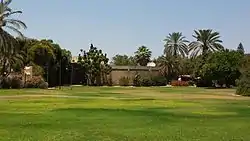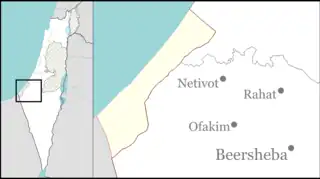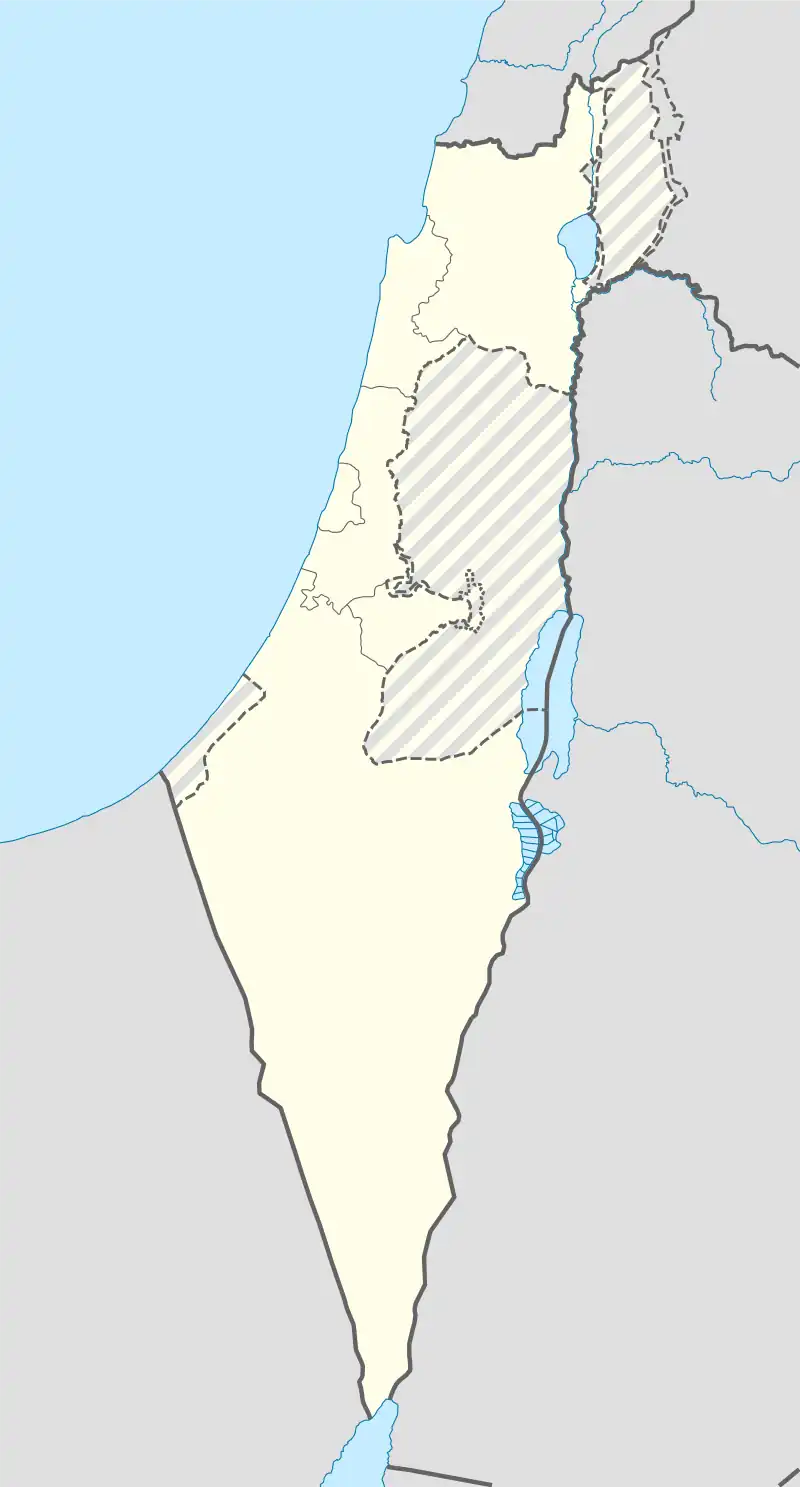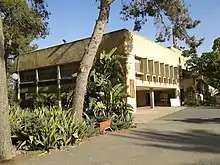Urim
אוּרִים أوريم | |
|---|---|
 | |
 Urim  Urim | |
| Coordinates: 31°18′15″N 34°31′25″E / 31.30417°N 34.52361°E | |
| Country | Israel |
| District | Southern |
| Council | Eshkol |
| Affiliation | Kibbutz Movement |
| Founded | 6 October 1946 |
| Founded by | Bulgarian Jews |
| Population (2021)[1] | 504 |
Urim (Hebrew: אוּרִים, lit. Lights) is a kibbutz in the Negev desert in southern Israel. Located near the border of the Gaza Strip and about 30 kilometers west of Beersheba,[2] the kibbutz falls under the jurisdiction of Eshkol Regional Council. In 2021, it had a population of 504.[1]
History

Kibbutz Urim was founded on 6 October 1946 as one of the 11 points in the Negev by a gar'in of young Jews from Bulgaria,[3] later joined by North American members of Habonim.[4] According to Walid Khalidi, Urim was established on land which had belonged to the Palestinian village of Al-Imara. Al-Imara became depopulated in the 1948 Arab–Israeli War, and Urim was established about 1 km south of the village site.[5]
Economy
Kibbutz Urim operated a blanket factory that was devastated by fire in the 1980s.[6] Today Noam Urim manufacturers needle-punched nonwoven fabrics.[7] Kibbutz Urim is a co-owner of Ora Field Crops, which is operates together with Kibbutz Kissufim also in the northwestern Negev. The cultivated area is about 27,000 dunam (almost 6,700 acres). Over two-thirds of the fields are irrigated from water sources supplied by water mains with hydraulic valves, communications and automation networks. Autumn crops include potatoes, carrots, radishes, wheat, barley and onions; spring crops include sunflowers, peanuts and corn. The summer crop is table grapes.[8]
References
- 1 2 "Regional Statistics". Israel Central Bureau of Statistics. Retrieved 22 February 2023.
- ↑ TIGI completes installation of an industrial solar heat system in Israel
- ↑ Survivor: Aaron M. Cohen
- ↑ 50th anniversary of the 11 Negev settlements
- ↑ Khalidi, W. (1992). All That Remains: The Palestinian Villages Occupied and Depopulated by Israel in 1948. Washington D.C.: Institute for Palestine Studies. p. 73. ISBN 0-88728-224-5.
- ↑ An example of burn prevention: The ‘urim’ factory fire
- ↑ Company Cameo: Noam Urim
- ↑ Maintaining quality crops in the desert
External links
- Urim Negev Information Centre
- Personal website about Urim